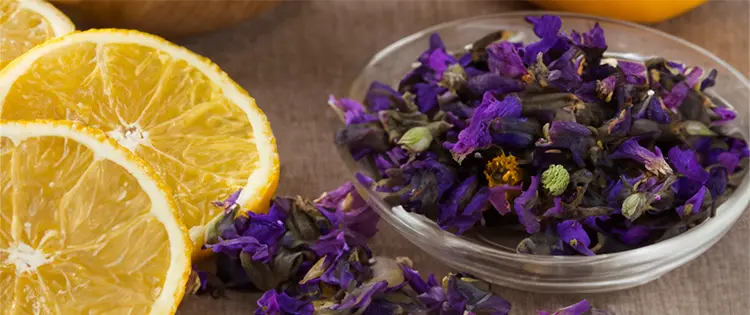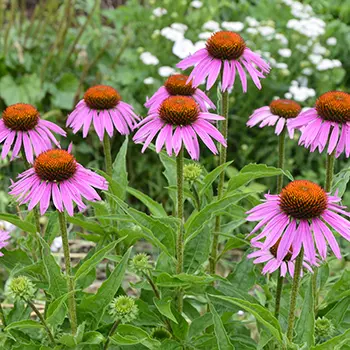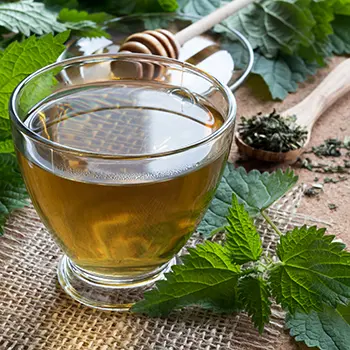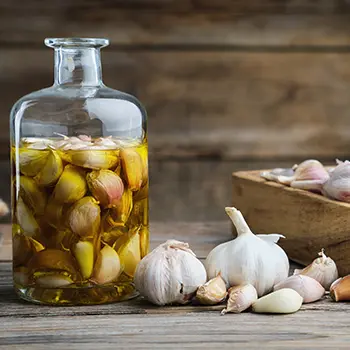The Amish community is known for its simple and traditional way of life, which extends to their healthcare practices. Amish natural remedies play a significant role in their approach. They often rely on traditional, home-based solutions for common ailments while blending them with other methods as needed.
As a homesteader or a future one, you can use many of the herbal remedies commonly known by the Amish community.
What Kind of Amish Natural Remedies Can You Use?
You can cultivate your own medicinal herbs in your backyard and always have a fresh source of herbs for making remedies. I recommend you start with these.
Use these herbs to brew herbal teas that soothe, promote health, and fit perfectly into your daily homestead routine.
Create herbal tinctures by extracting beneficial compounds from the herbs with alcohol or vinegar.
Apply poultices made from yarrow, mullein, or comfrey to relieve pain, reduce inflammation, and treat skin issues.
Common Amish Natural Remedies
Chamomile
You can use chamomile as a natural remedy just like the Amish. Chamomile is a versatile herb known for its calming and soothing properties, and you can use it in many ways.
One of the most common and simple uses of chamomile is turning it into tea. Grow chamomile in your herb garden, and harvest the flowers when they are in bloom. Dry the flowers by spreading them on a tray or hanging them in a well-ventilated area. Store the dried flowers in an airtight container. To make tea, simply steep a teaspoon of dried chamomile flowers in hot water for 5-10 minutes. You can sweeten it with honey if you like.
Chamomile tea is soothing and can help with sleep, relaxation, and digestive discomfort. It can be used for stress relief or as a mild sedative.
Amish Natural Remedies: Ginger
One of the most common ginger remedies Amish uses is ginger syrup. Prepare ginger syrup by simmering ginger with honey or sugar. This syrup can be used to soothe sore throats, coughs, and cold symptoms.
Ginger is well-known for its digestive and anti-inflammatory properties, and it can be a valuable addition to a homesteader’s natural remedy toolkit.
Echinacea
Echinacea, or coneflower, serves as a powerful natural remedy known for its immune-boosting properties.
Treat wounds or insect stings with an Echinacea poultice. Simply crush fresh Echinacea leaves and flowers, and apply them directly to the affected area.
To follow traditional Amish practices, start by making an Echinacea syrup. First, combine Echinacea tincture with honey, creating a sweet and soothing mixture. Then, use this syrup as a daily immune tonic, especially for children who might not enjoy the taste of the tincture on its own.
You can find here high-quality, NON-GMO echinacea seeds.
Amish Natural Remedies: Yarrow
Yarrow, also known as Achillea millefolium, can be used to help stop bleeding and promote wound healing.
One of the most common remedies is yarrow slave. As ingredients, use Yarrow-infused oil (made by infusing a carrier oil with dried yarrow) and beeswax. Combine the infused oil and beeswax to make a salve. Apply the salve topically to help with minor skin irritations and to promote wound healing.
Nettle
Amish communities use this herb to support their immune system.
Nettles often grow wild, but you can also plant them in your garden. These hardy perennials are easy to grow and a great addition to any homestead.
When harvesting, pick young leaves and stems before the plants flower. Be sure to wear gloves to protect yourself from stings. You can either snip individual leaves or cut the upper part of the plant for convenience.
For long-term storage, dry the nettles carefully. Spread the leaves and stems in a well-ventilated spot, or speed up the process with a food dehydrator. Once they are fully dried, store them in an airtight container to keep them fresh for future use.
You can use nettle to make nettle tea, nettle infusion, and even soup or pesto.
Amish Natural Remedies: Honey
The Amish community relies on honey as a trusted natural remedy for health and wellness. They value its many potential health benefits and seamlessly integrate it into their daily routines.
To soothe a sore throat or suppress a stubborn cough, the Amish often take a spoonful of honey. They mix it with lemon juice for a comforting and effective remedy.
During cold and flu season, the Amish often use raw honey as a natural way to boost their immune system. Its enzymes and antioxidants are thought to strengthen the body’s defenses.
Honey is also popular for its wound-healing abilities. The Amish apply it directly to minor cuts, burns, or wounds to help prevent infection. For added protection, they sometimes pair it with a clean bandage.
From cough relief to wound care, honey remains a versatile and essential part of Amish natural remedies.
Garlic
Garlic is a key remedy for respiratory issues in the Amish community. When someone has a cold, cough, or congestion, they often make a homemade garlic remedy. This involves boiling garlic cloves and mixing them with honey, lemon, and other soothing ingredients to create a syrup or tea. Drinking this mixture is believed to ease symptoms and strengthen the immune system.
For insect bites, garlic is also a go-to solution. Crushing a garlic clove and applying it directly to the bite can help reduce itching and inflammation.
As a homesteader, I’ve found it valuable to learn about Amish traditions and incorporate their remedies into my practices. The Amish rely on herbs and natural ingredients, many of which are easy to grow on a homestead.
These remedies are especially helpful during emergencies, power outages, or when living far from conventional healthcare. By embracing them, you can boost your self-reliance and be better prepared for unexpected challenges.
While herbal remedies can be a great addition to a homesteader’s health toolkit, it’s important to remember that not all remedies are suitable for everyone or every situation. If you have specific health concerns or are unsure about using a particular remedy, it’s always wise to consult with a healthcare professional or herbalist to ensure safe and effective use.
Do you know any other natural remedies from the Amish? Let us know!
You may also like:
Natural Remedies From The Civil War Era
What Happens When You Pour Sugar Into An Onion? (Video)













